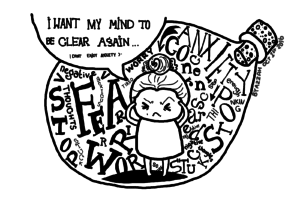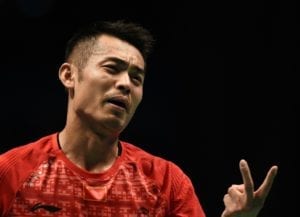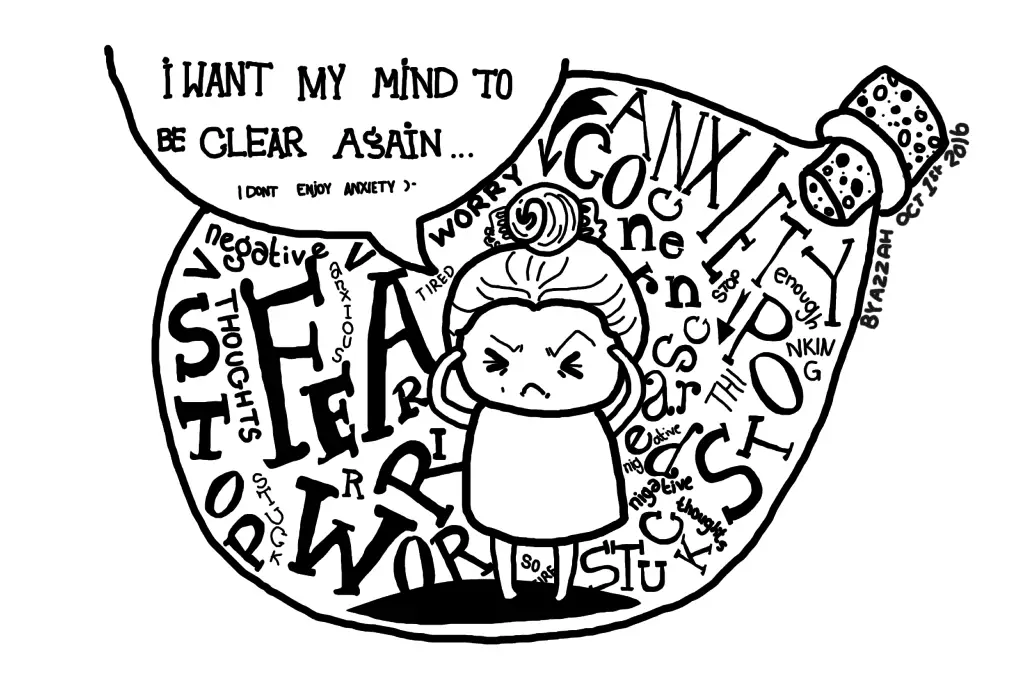Anxiety is something that hits me hard. I would say that my most significant reason for never playing well in tournaments would be getting too nervous as opposed to skill.
Not playing to the best of your ability or even how you usually play creates one of the worst feelings in the world. That’s why I’m going to dedicate some time to give you some more badminton tips and tricks.

This one is about controlling your emotions during a game/match.
Play More
This piece of advice is something that everyone will say. I remember asking my coaches on how to stop being nervous and they just told me, “Well you can’t do much really, just play more.”
What playing more mainly means is that play more tournaments. For me, competitions are when I get the most nervous. It’s when I start to think about winning instead of playing to the best of my ability. To get rid of the anxiety from playing in tournaments, you just have to play more competitive matches.
Tournaments are usually held at different clubs and gyms in most places so playing more matches means you’ll play in a variety of settings. One of the first things that will probably make you nervous is playing in a new place.
“What if the lighting is bad?”
“What will happen if the floor is bad and I slip?”
“I don’t know anybody here.”
These are all natural concerns that many tournament players will have at the start. Playing more tournaments will help you get more accustomed to these different settings and allow you to adapt more quickly.
Playing more tournaments also builds routine into you that training doesn’t develop. One of the things with competitive matches is that they will have specific procedures such as calling out your name, a scorekeeper, testing shuttles, perhaps even an umpire and some line judges. These things can definitely affect you especially if you’re a tournament rookie.
When I started playing tournaments, some of these procedures really messed with me. I was nervous about not getting on the court on time, not bringing the stuff I need, afraid that I will look bad not knowing what to do and more. But honestly, you’ll get more confident as you play more.
Playing more tournaments also gives you the experience to play against players that you don’t regularly play against. Once you do this enough, you’ll also stop wondering how good your opponent is and become more focused on your own play which will allow you to win more.
Although I talked a lot about playing in tournaments, playing with a few training friends or your club members as much as you can is hugely beneficial. Another major concern of new players in tournaments is that their skill isn’t high enough and that’s a valid reason. The solution to this problem is just to train more.
Eventually, if you want to get competitive in the badminton world, you do have to play tournaments and competitions. You can’t expect to train a lot and then suddenly come into a tournament and win. Playing competitive matches gives you benchmarks, so you know where your skill is at, and without those benchmarks, you won’t know what your strengths and weaknesses are.
Don’t Think
Sometimes the brain is too slow. Sometimes the brain also drains us. It’s especially true in badminton. It might seem counterproductive to not think while playing but it’s actually a lot better for your  performance.
performance.
Once you’re at an advanced enough skill, you should be able to swing your racket and move your feet without thinking about all the little bits of technique. If you can do this, thinking during a rally will only slow you down. You’ll also bring yourself out of something many sports players and officials like to call, “the zone.”
The zone is a state of mind where you’re focused intensely and playing at your highest level. My personal experience with the zone is that I felt like I had infinite energy, a lot more strength, and I was moving faster. It’s definitely a great feeling and something you should harness.
Getting into the zone is done by not thinking, at least for me. Everything becomes muscle memory, and it seems like your body just moves on its own. Thinking will only distract you and make you tired as the brain needs resources.
Thinking about things like how your legs are sore, that the opponent is up five points against you, how your form looks, or even what shot to play will only demotivate you and bring about the defeatist in you. Even if you’re winning, thinking will tell you to stop applying pressure to your opponent and make you play worse. The brain doesn’t help you during competitive games.
A lot of people will actually tell you to think about what shot you should play. While this works in some cases, I find the brain lag and the split seconds of deciding actually prevents you from pulling out your best shot. All the thinking based on shots and strategies should be done in between rallies and games.
You should also have muscle memory and experience with different situations from your training. Losing is okay. It builds another piece of muscle memory that’ll help you win.
What To Think About
Sometimes our minds will subconsciously wander off into the dark realms of our pessimism and worries about future events. I’m going to tell you about some ways you can limit this before it affects your gameplay.
The first step before your matches is to think about how you usually play. Relaxed playing is when we play best. Happy playing helps too. Imagine your best games and moments.

Give yourself a different mindset for tournaments. While winning can be significant, it’s not as crucial as the learning experiences or fun you can have. So get your mind off of winning and start thinking about tournaments as places to improve and have some fun. This will relax you a ton.
During your rallies, don’t think about points. Try not to look at the scoreboard if there is one. If you have to call out the score, call it out but don’t try to calculate how many points you need to win or how many your opponent needs.
Instead, think of never letting the shuttle touch the ground on your side. Give yourself a goal of getting all the shots back.
Before Game Activities
There are also some things you can do to help limit anxiety before tournaments.
The first thing is sleep. What’s more relaxing than sleeping? Make sure you get a good night’s sleep before your big tournament. You really need the energy.
Also, remember the other usual things such as eating well. The standard theory is to stock up on carbs the night before and eat protein before the game. But if doing this is only going to make you more nervous, don’t do it.
It’s connected to a thing where your everyday habits will relax you. When you get on a court, do you always do some footwork first? Spin the racket in your hand? Practice serve? If there’s something you always do, keep doing it! Don’t let the tournament change you unless it’s against the rules.
Another activity that can help is doing some light exercise or playing a little. This will help get your blood pumping and get you warmed up. You can check out a post about warm-up exercises you could do. Playing a little bit will also give you more control of your racket and confidence. Just don’t overdo it. You may get too tired, or even worse, injure yourself.
Conclusion
And that concludes Badminton Tips and Tricks #5! I hope some of these tips will help you in your tournaments. They’ve really helped me in the past.
Do you have any other tips or strategies you could share? I bet everyone would love to hear what you have to say! Leave a comment in the comment section down below!
As always, good luck in your games and have a great day!


All the tips mentioned above are really very helpful & will surely boost up the confidence in the players. Thanks a lot.
No problem! I’m glad these tips are useful.
Fact oriented descriptions, very nice tips & encouraging too.
Thank you! I do my absolute best to provide content that is valuable. I’m glad you found it enjoyable.
Such nice ideas.. you have written it so well. Love this post!
Thank you for commenting!
Hi Kevin…my son is facing these problems right now. I seriously do not know how to convey these ideas of yours to him. Sound easy but it’s hard. Really hope you can help.
Thanks for commenting! For a more updated version on controlling anxiety in tournaments, check out this article: 5 Must-Follow Mindset Principles To Achieve Maximum Success In Badminton Tournaments. I would actively try to think about those principles in the article and practice them as much as you can. I also found reading books like The Obstacle Is The Way and Ego Is The Enemy (both by Ryan Holiday) very helpful.